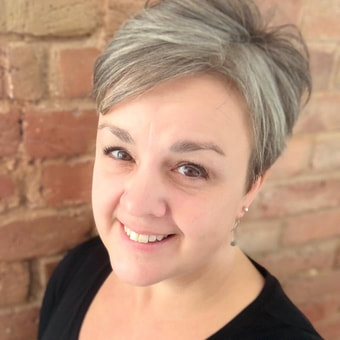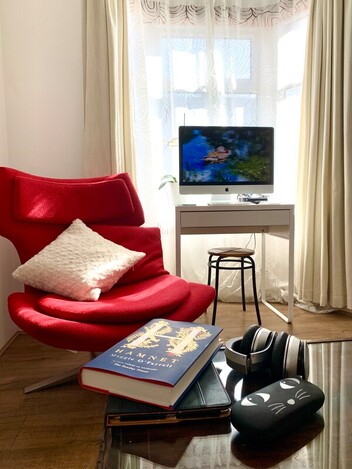Any writer who actually finishes a piece of work, whether it's a short story or a novel, will at some point get ‘stuck’. What do you do when you get to that sticky point and what strategies do you have for working past it? As I have always done with life in general, when I am stuck I walk away. It’s a learned behaviour, but it does come in handy when writing. I plan a lot in my head, so when I do sit down to write and become stuck, I walk away from the computer or the notebook for a while. This way I can (usually) clear my head and refocus. The downfall of this is that sometimes I stay away for extended periods of time and I don’t revisit the piece I was working on and then it is left incomplete. I could publish a book entitled: The Complete Incomplete works of Joanna McQueen. I am working on this. No it’s not procrastination! Well maybe it is a form of it... "I walk away from the computer or the notebook for a while. This way I can (usually) clear my head and refocus." You are querying agents and publishers for your first book, a children’s story written in a lyrical style. From your experiences so far, do you have any tips to share with other children’s authors who are just beginning to wade into the waters of querying? Keep writing! Keep trying! Never give up! This is my daily mantra. It has taken a very long time for me to see myself as a writer/poet. The internal voices telling me I wasn’t good enough spoke very loudly and persistently, so I believed them. Unfortunately, some of these voices came from real people and not just self-deprecation. I am learning not to listen to them. So my best advice is don’t believe the voices (or the people/letters) that tell your work is not good enough, or right, or it’s not the right time, or you should just give up. Don’t believe them. They are lies/liars! "The internal voices telling me I wasn’t good enough spoke very loudly and persistently, so I believed them. [...]
In your story, a young boy who has been grounded finds himself transported to a magical library. What role do you see libraries playing in this internet age as so much media gets transferred away from traditional paper onto digital platforms?
Stories can be so powerful in communicating ideas. It is especially challenging, I would imagine, in a children’s book where your word count is limited. How did you manage to take the whole narrative and boil it down to the words that ended up in the story? Another good question. I believe I have been creating this story and ones like it, in my head, for a long time and one day I just wrote this particular one. The magic of this story flowed through me. It just worked. I can’t explain it. With that being said, I am a mother and a teacher and I love stories, especially whimsical rhythmic ones. I have read a lot of children’s books so I have been able to explore them quite extensively. I especially enjoy Dr Seuss and have several of his books memorised. He is an inspiration and I suppose I followed his narrative, unknowingly. Understanding the narrative and structure of children’s books is important and writing to fit the specifications can be challenging but sometimes, just sometimes, a story works all on its own. "The magic of this story flowed through me. It just worked. I can’t explain it." Many authors day-dream about having an artist illustrate their work. What tips do you have for finding and working with an artist if an author chooses to go that route? I’m not sure if I am the right person to give advice on this as I am so new and the experience of working with an illustrator is as well. The illustrator I approached is the daughter of a long-time friend and I just love her. I asked her to illustrate my story not only because of the association, but because I see her as a talented artist that should be recognised for who she is. Knowing her as well as I do, I knew that she would be able to create with her hands, the images I created with my mind. Thankfully, she said yes and is delighted to work with me and I am so very pleased. "Knowing her as well as I do, I knew that she would be able to create with her hands, I suppose any advice would entail choosing an illustrator that will compliment your work, if this is an option of course. I reviewed a children’s book yesterday and the only negative thing I would say about it was that the illustrations didn’t fit the story. It was a lovely story but the illustrations did not do it justice. So now, I believe that illustrations complimenting your story are quite important. Hence why I chose who I did. Where can readers find more of your work and stay up to date on your latest publications? Because I am so brand new, I am still organising the platforms to promote myself as a writer. I have an Instagram account where I talk about books: adult, young adult and of course children’s. My pages are the title of my book: The Library of Imagination. My email is the same. I have very recently started a Facebook page also of the same name. I will create a website in time. It’s on my ‘to do’ list. I can be contacted on any of these platforms and would be happy to engage with people. Find out more about Joanna's book The Library of Imagination on Instagram.
0 Comments
Leave a Reply. |
AuthorJoshua Gillingham is an author, editor, and game designer from Vancouver Island, Canada. Archives
April 2022
Categories
All
|




 RSS Feed
RSS Feed
